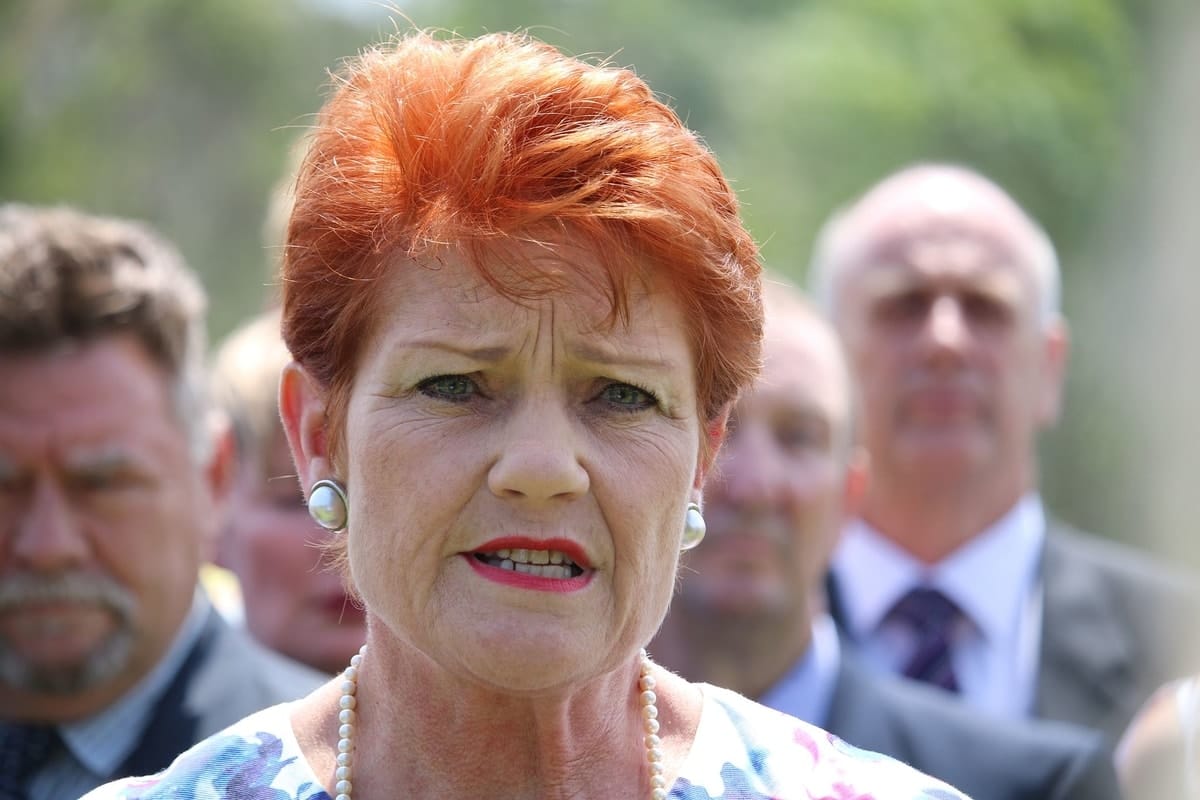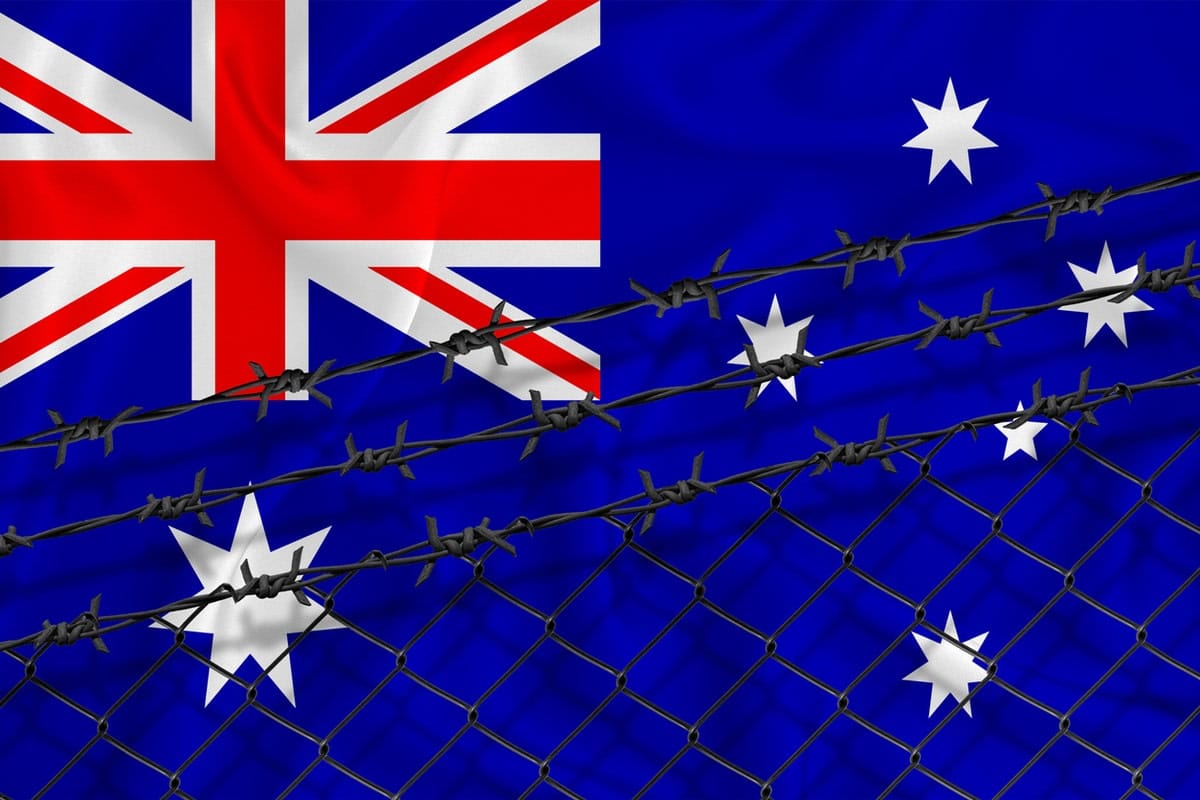
Far-right populist movements have a long history of scapegoating vulnerable minority groups as a way to obscure the broader systemic causes of social and economic division and inequity.
The Nazis infamously targeted Jews as the alleged “source of our misfortune” ("Die Juden sind unser Unglück!") in order to divert the anger of the unemployed and other disadvantaged groups from the real structural sources of political and economic power in German society.
Similarly, far-right movements today simplistically blame ethnic, religious and sexual minorities, Indigenous communities, and refugees and asylum seekers for deep-seated social and economic problems.
The largest Australian far-right party is Pauline Hanson’s One Nation, which was formed in 1997, and currently holds two seats out of 76 in the Australian Senate, and a total of six seats in the state and territory parliaments.
The growth of the far-right in democracies
Since the 1980s, far-right political parties have grown in democratic states. To date, 14 European countries are home to at least one major far-right political party. For example, the Danish People’s Party attracted 21% of the vote in the 2015 national election.
These parties are characterised by their populist advocacy of what they define as national interests, and their aggressive hostility to ethnic minorities, including particularly recent immigrants.
Traditionally, far-right parties espoused a robust neoliberal critique of the welfare state, seeking to substantially reduce government spending on social welfare programs and payments for disadvantaged groups.
However, in recent years, they’ve reverted to what is called a “welfare chauvinist” approach.
Welfare chauvinism isn’t opposed to the welfare state, and in fact often endorses generous assistance for deserving citizens. However, immigrants can be excluded on grounds of culture, race, religion or ethnicity.
Sometimes, this proposed exclusion of immigrants from social supports is also extended to Indigenous populations who are framed as separate or inferior to the majority culture or nation.

In the Australian context, there’s been no empirical examination of One Nation’s views on social welfare.
Consequently, our study (a chapter from this book) examined: To what extent is welfare chauvinism apparent in One Nation’s views of social welfare policies in relation to refugees and asylum seekers, and Indigenous Australians?
We used 80 public statements by One Nation on social welfare issues from 1997 until this year, including parliamentary speeches and committee participation, media interviews, video format interviews, party policy statements, press releases, and one biographical text. An analysis of those documents identified the following core themes.
Refugees and asylum seekers
Prioritisation of local welfare recipients
The prioritisation of Australian-born welfare recipients was a significant feature of One Nation’s refugee and asylum seeker welfare rhetoric.
Deserving welfare recipients
Although One Nation preferred to support Australian-born welfare recipients, its sympathy was selective and mainly targeted to old-age pensions. They constructed this payment as a right that was earned through paying taxes, and hence should not only be protected, but increased.
They also supported other groups they deemed to be in “genuine need”. Refugee and asylum-seeker welfare was framed as unfairly detracting from these “deserving” groups.
Othering: The targeting of Muslims
One Nation initially gained prominence for its attacks on Asian immigrants in the 1990s. But more recently, its principal target has been Muslim Australians. It asserted that Muslims were chronically unemployed, highly welfare-dependent, and used fraudulent methods, including the use of polygamist practices, to abuse the Australian welfare system.
"Australian Muslims are a significant drain on the public purse, because of the rates of unemployment and dependence on social welfare.” – Pauline Hanson, parliamentary speech, 9 August, 2017
Community isolation
An associated belief was that refugee and asylum-seeker populations segregate themselves from broader Australian society, refusing to engage through language, culture or ethos, and that Australian welfare payments fund and perpetuate this seclusion from others.
Exploitation of the welfare system by immigrants
One Nation presented claims of rampant welfare cheating and deception by immigrant groups, particularly through polygamous practices. The party alleged conscious intent and malice, and a strong desire of this population to illegally manipulate the Australian welfare system.
It also asserted that Australia is an established international target for people seeking to exploit the “overly generous” national welfare system.
Economic concerns
One Nation emphasised the squandering of government funds as a result of alleged welfare dependence and cheating by the immigrant population, and cited the large welfare bill as a rationale for more rigorous and restrictive welfare policies.
Indigenous Australians
Support for compulsory income management
One Nation has offered strong support for the unique conditional welfare measure called compulsory income management (IM), which disproportionately affects Indigenous Australians. It argues that this contentious policy is necessary to combat social problems prevalent in Indigenous communities, such as substance abuse, poverty, poor financial management skills, and crime.
Critique of the ‘Aboriginal industry’
A core theme was One Nation’s derogatory use of the term "Aboriginal industry". This was used to summarise negative party views towards Indigenous welfare programs and payments.
In particular, it alleges Indigenous citizens are intergenerationally welfare-dependent, receive preferential welfare treatment without genuine need, and unfairly benefit from a lucrative, billion-dollar welfare “industry” that’s protected by both individuals and Indigenous welfare agencies. According to a recent statement:
An associated belief was that Indigenous Australians receive “privileges” on the basis of race rather than need, that these positive discrimination policies create separatism within Australian society, and that they are unfair to the interests and needs of the majority of Australians, particularly as taxpayers.
In another recent statement, the One Nation candidate for the Upper House in the New South Wales state election, Mark Latham, urged that Aboriginals claiming welfare support be obliged to undergo DNA ancestry testing to prove their identity.
Welfare policies
One Nation rejected what it called perceived positive discrimination in favour of Indigenous Australians. It argued that welfare should be allocated on the basis of need, and that Indigenous heritage should not enable access to welfare payments that weren’t available to the majority of the Australian population.
In the views expressed by One Nation, our research team saw consistencies with well-established characteristics of far-right parties internationally – such as hostility towards immigration, and exclusionary and often openly discriminatory appeals concerning access to welfare supports.
Read more: Australia’s history is complex and confronting, and needs to be known, and owned, now
One Nation presented strong arguments in favour of limits being placed on refugee and asylum-seeker populations accessing Australian welfare, and a clear preference for prioritising the needs of Australian-born welfare recipients.
This aligns with core welfare chauvinist beliefs that a country’s welfare system should be reserved only for the national majority population.
But its endorsement of welfare rights only included selected deserving recipient groups such as aged pensioners and those regarded as genuinely needy. One Nation argued that refugees and asylum seekers were unjustly depleting the level of welfare resources available to these “deserving” recipients.
In the views expressed by One Nation, our research team saw consistencies with well-established characteristics of far-right parties internationally – such as hostility towards immigration, and exclusionary and often openly discriminatory appeals concerning access to welfare supports.
In contrast, One Nation’s attack on the welfare rights of Indigenous Australians was motivated by a different range of arguments, including accusations of unfair positive discrimination, belief in a self-interested Aboriginal welfare industry, and a paternalistic approach to Indigenous disadvantage.
Therefore, it appears One Nation’s perspective on Indigenous welfare – as opposed to refugees and asylum seekers – doesn’t specifically align with existing understandings of welfare chauvinism.
Instead, it matches a conventional neoliberal critique of the welfare state as typically advanced by mainstream conservative political advocates, covered here in a book by one of our team.
Read more: Hi, neighbour: The dynamics that shape Melbourne's inter-ethnic relationships
In particular, One Nation’s critique of the so-called “Aboriginal industry” equates with the standard neoliberal argument, based on public choice theory, that social welfare professionals utilise welfare programs for their own professional advantage.
Additionally, calls by One Nation for greater accountability and control over Indigenous welfare programs and recipients calibrate with the neoliberal belief that recipients have obligations as well as rights.
Those who fail to meet their obligations are then labelled as the undeserving poor, and subjected to conditional welfare measures to alter their self-defeating behaviour.
This article was co-authored with honours student and Department of Social Work researcher Tegan Edwards.





